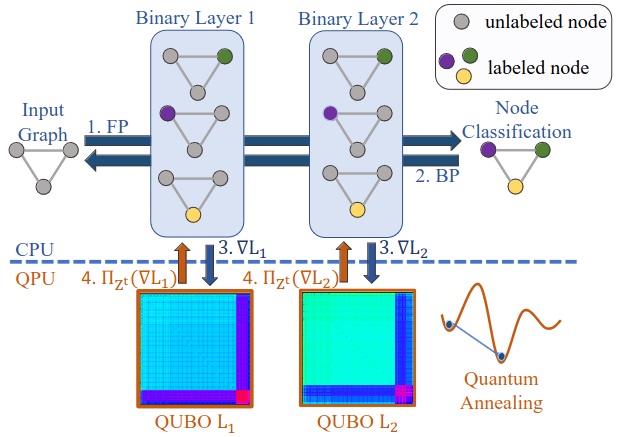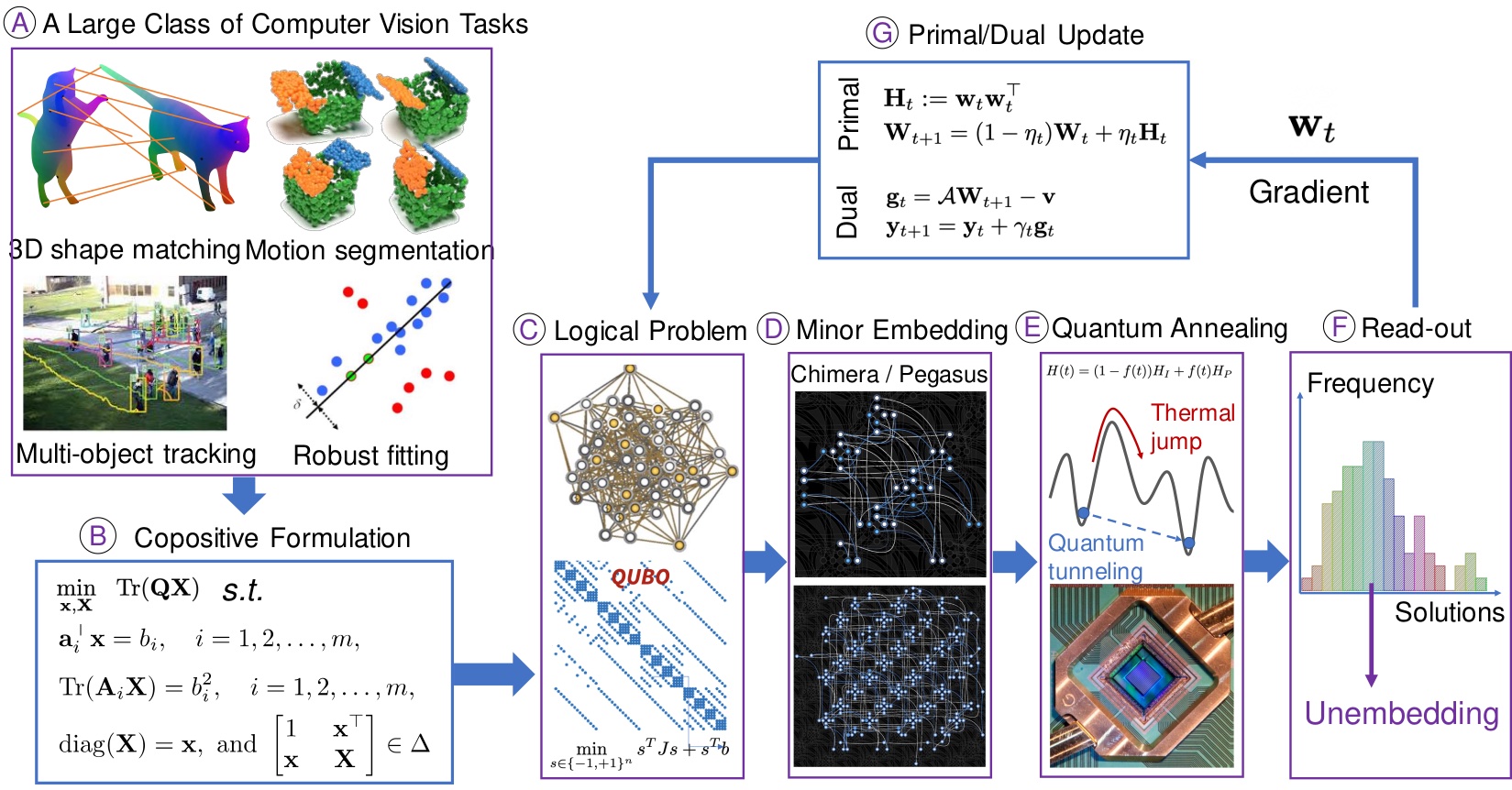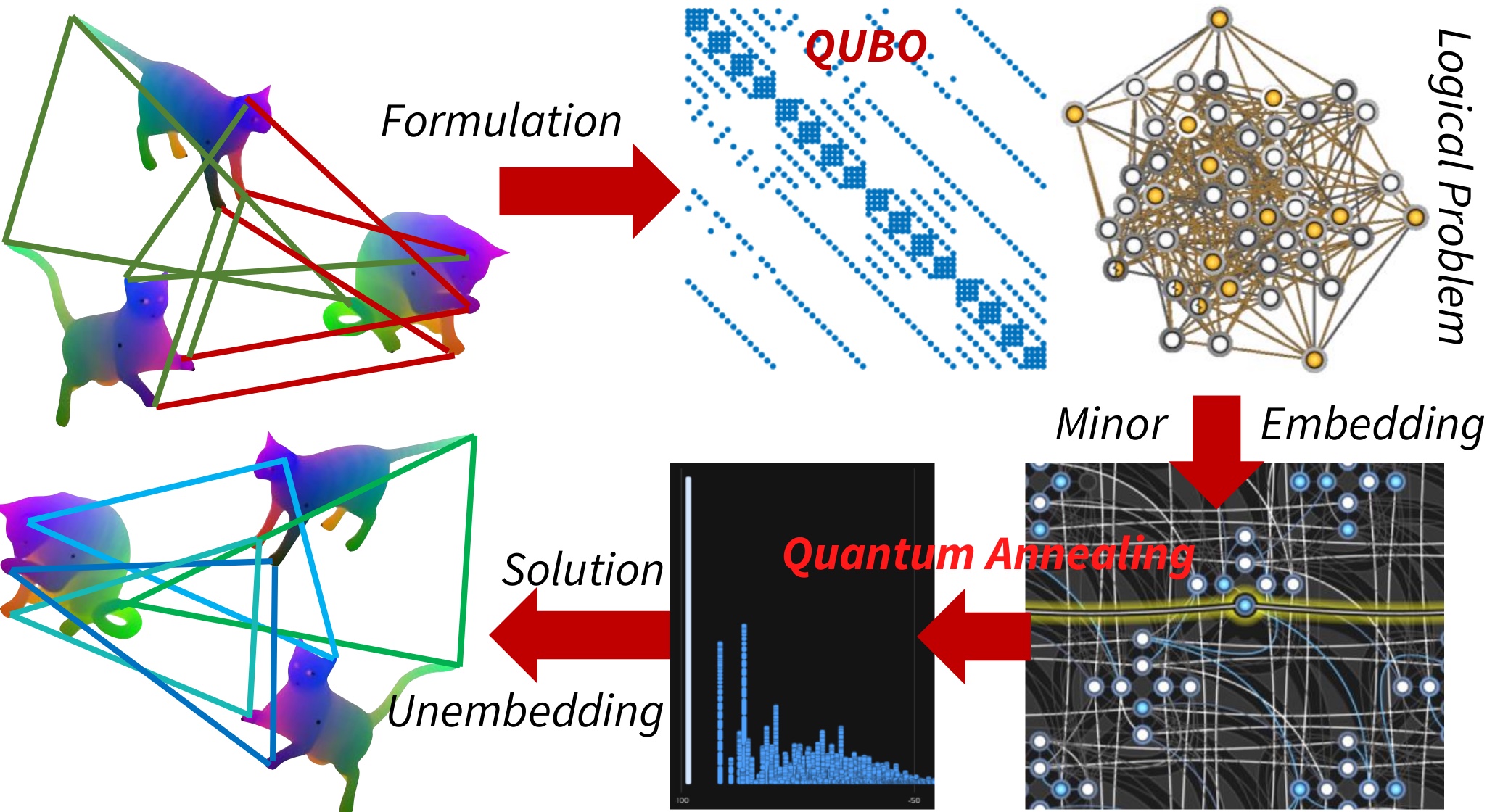Quantum Computer Vision
Investigates the uncertainties and ambiguities in 3D vision problems such as pose estimation, reconstruction and etc.
Quantum computers (QCs) differ from classical computers in that they leverage quantum mechanical effects to perform computations. Their primary advantage is that their time consumption scales better than classical computers for multiple classes of problems. Most of the problems QCs excel on frequently occur in a multitude of computer vision applications. Thus, QCs have a large, perhaps unprecedented potential in computer vision to challenge scenarios where existing methods would provide only approximate solutions or would not be able to solve problems in reasonable time at all. After being a prerogative of physics laboratories for decades, functioning circuit-based quantum computers and quantum annealers that can be used to solve real-world problems can be nowadays accessed remotely for research purposes. To fully leverage such great potential, specialised algorithms have to be designed for QCs, and these algorithms have to be formulated in representations/forms consumable by modern QCs. This survey introduces quantum computer vision as a computer vision approach enhanced by quantum computing power and focuses on methods that can run and be evaluated on real quantum hardware. We review the operational principles of two quantum computational paradigms as well as the tools to access and program them. This project considers addressing limitations, future directions and potential social implications of this emerging research area. We specifically take a computer scientist perspective and initiate this new and exciting field of Quantum Computer Vision.
Related Publications
2024
-
 Probabilistic Sampling of Balanced K-Means using Adiabatic Quantum ComputingIn IEEE Conf. Computer Vision Pattern Recognition (CVPR), 2024
Probabilistic Sampling of Balanced K-Means using Adiabatic Quantum ComputingIn IEEE Conf. Computer Vision Pattern Recognition (CVPR), 2024


